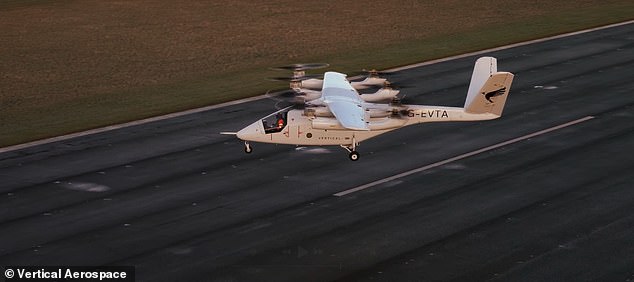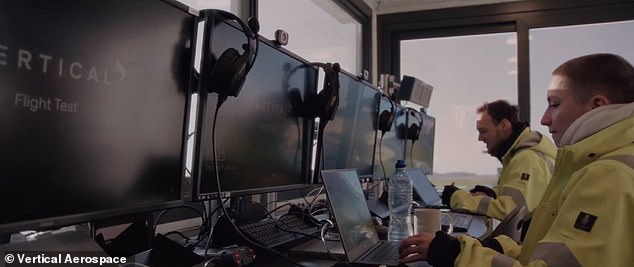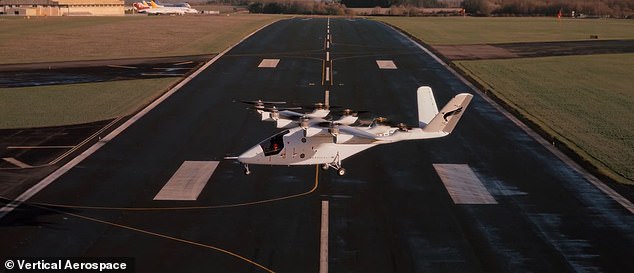Britain’s first ever flying taxi has taken to the skies at 150mph as the government propels its plans to make the service mainstream by 2028.
The prototype VX4 vehicle flew one pilot and four passengers on a cross-country trip over the Cotswolds following its launch at the region’s airport runway.
Flown by pilot Simon Davies and developed by Bristol-based Vertical Aerospace, the journey marked the first time the plane had flown in normal airspace outside of strict test conditions.
It comes as the government last month announced £20 million of funding for the Civil Aviation Authority (CAA) to make flying taxis a reality.
Later this decade, humans could hail the Uber-style trip on flying taxis and be transported distances much quicker than traditional cars on the ground.
Flying taxis could travel through the air almost without stopping – a blessed relief from the start-stop nature of ground-based taxi trips.
Under the proposals, a journey from Liverpool to Leeds would take just 26 minutes, compared with an hour and a half in a car. Brighton to Heathrow would come in at 20 minutes, which currently takes four times as long by car.
The aircraft, which can hit speeds of up to 200mph, are expected to generally make journeys more than three times quicker than by car and are touted as cheaper, greener, quieter and more accessible than helicopters.

The prototype VX4 vehicle flew one pilot and four passengers on a cross-country trip over the Cotswolds following its launch at the region’s airport runway

Flown by pilot Simon Davies and developed by Bristol-based Vertical Aerospace, the journey marked the first time the plane had flown in normal airspace outside of strict test conditions

Vertical Aerospace is among a cluster of companies developing the innovative transport mode which is able to ferry passengers in quiet, zero-emissions aircraft in or between urban areas
Mr Davies said: ‘Taking the aircraft beyond the airfield and cruising over the Cotswolds for the first time was truly special and a career highlight for me.
‘Our performance predictions were absolutely spot on, and the aircraft took off as a natural extension of all the ground tests and preparation we’ve done.’
Vertical Aerospace is among a cluster of companies developing the innovative transport mode which is able to ferry passengers in quiet, zero-emissions aircraft in or between urban areas.
Rivals have tried something similar in Dubai and the US but the organisation’s flight is the first time a flying taxi has performed a journey in open airspace in Europe.
Previously, the startup carried out a hover test of its aircraft in January.
The electric vehicle is designed to take off vertically or on a runway, held in a hovering pattern by its propellers or tilted to operate more like a traditional aircraft.
Founded by Stephen Fitzpatrick, the Ovo Energy entrepreneur, Vertical Aerospace has received millions of pounds in UK government funding to develop the flying taxi, in addition to the tens of millions of pounds from private investors.

The VX4’s next major test flight will test its capabilities of cruising using its wings, as well as building on its its vertical take-off capabilities
The aircraft has capacity to carry one pilot and four passengers, offering a range of speeds and mileage.
The VX4’s next major test flight will test its capabilities of cruising using its wings, as well as building on its its vertical take-off capabilities.
Earlier this year, the start-up received a £70m bailout from Mudrick Capital, a US investment fund, as Mr Fitzpatrick ceded control of the business as part of the rescue plan.
The business explained it had cash reserves of £65m following the deal but fresh funding was still needed to avoid running out of money within a year.











